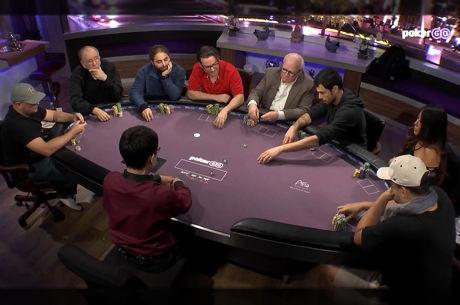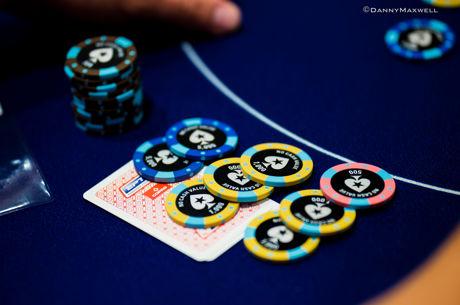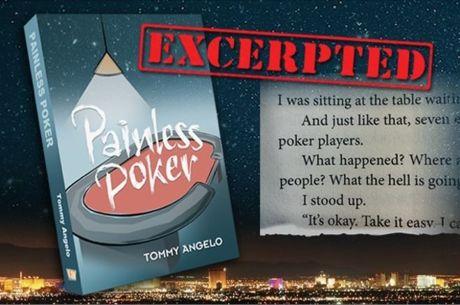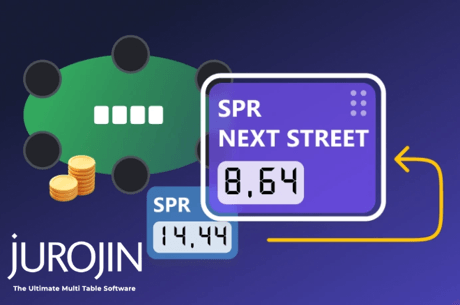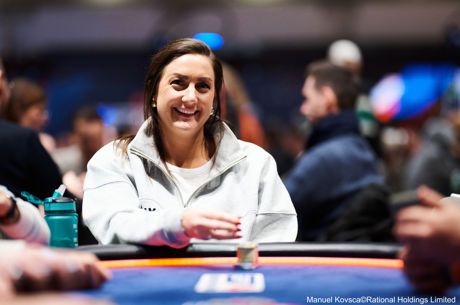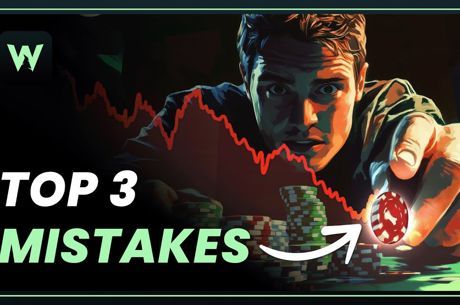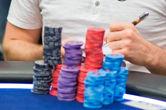Tommy Angelo Presents: Zero Sum Minus Some
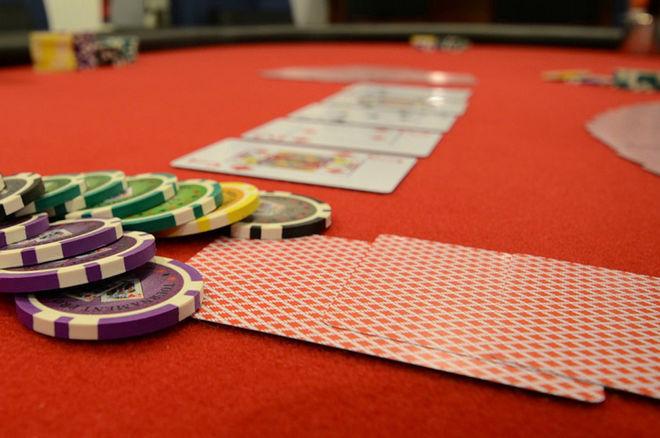
Ed. note: Poker coach, author, and player Tommy Angelo shares with us an earlier article of his that draws attention to the not-always-accurate description of poker as a "zero sum game."
A core group of five of us started playing poker together in high school and we didn't stop until their babies started. We played at my place because among us, I had the best stereo, the best album collection, and the only official octagonal brown-vinyl-topped poker table with the wooden perimeter specially designed to hold coins and cash and spilled beer.
There was no rake when we played, and none of us had even heard of such a thing. If we ordered pizza, we paid for it when it got there.
One of our guys, Dave, met some guy at a bar, Joe. Joe invited Dave to a poker game at Joe's house. Dave wanted me to go, too, so I went. The game was six-handed. There was me, Dave, Joe, Joe's wife, and two other guys. We played on a long, uncovered, wooden dining room table, with gaps between the leaves. All bets were one dollar and we played with cash. Joe kept reaching into the pots and taking a dollar out. The bills would disappear below the table into Joe's lap. I looked at Joe. "For the pizza," he said.
The next time I went to Joe's house to play poker, there were ten players, and all bets and raises on all streets were $3. This was way more players and dollars than I was used to. And Joe was at it again with the stickyfingers. I was too terrified of everything to say anything.
I stood up to go pee and I walked behind Joe to get a peek at the pizza fund. Between Joe's legs, held fast by his knees like a drum, he had a cookie canister with a slit gouged into the lid. It was filling up fast with portraits of George Washington.
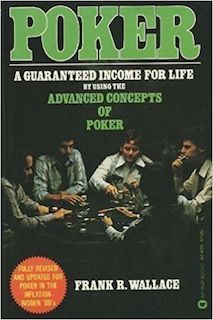
Right around then — this was 1981 or so — I read a book by Frank Wallace called Poker: A Guaranteed Income for Life. Over and over again I read the tales of hero John Finn as he nurtured and manipulated his farm-league of home games to achieve maximum extraction. I was captivated by the philosophy of discipline, aggression, effort, and shameless fleecing. I will be John Finn, I dreamed, someday.
And the reach of my dream was longer than the kitchen tables in Ohio. Vegas-bound, I'd be. That's where I'd play hold'em and stud. And I'd play draw poker, too, in Gardena, California, near Los Angeles. Those were the places to be, to play legal, public poker. It said so in the book. And the drive from LA to LV was not all that far. It said so on my map.
In the back of the book was one part I only reread a couple times and then stopped because it punctured my fantasy. Wallace talked about what it would cost me to play public poker compared to home games. Mainly there was the rake and tips that I would pay to the house. Additionally there would be an invisible lost income in the form of money that the loose players bring with them that goes to the house before it has a chance to go to me.
Wallace said that to play poker full time in Vegas or Gardena will cost tens of thousands of dollars per year. Win or lose. Off the top. Tens of thousands. Of dollars. Per year. Like Joe's pizza fund, but more, and without the pizza. To preserve the dream, I shelved this information in the denial compartment of my baggage.
In 1987 it became legal throughout California for privately owned cardrooms to spread hold'em and stud. Thousands of new poker tables captured the action, each one equipped with a slit and a drop-box. It was the California Rake Rush.
But I didn't see it that way back then. I could barely see past my cards. Whenever I heard or read about the expansive rooms and wild games in California, all I thought about was playing in them. Then in 1997 I bought a one-way ticket, and all I did was play in them.
Soon after landing in California, I unpacked my baggage. I went back to the back of that book. I reread my least favorite part, and I assessed my future, Wallace-style, like a business:
My cost of living (food, rent, car, etc.) was going to be $40,000 per year. That's what I needed to net. My cost of playing (rake and tips) was also going to be $40,000 per year (pizza not included). So, if I was going to maintain my meager bankroll and remain unbroke, I was going to have to make betting decisions that were $80,000 per year better than my opponents' betting decisions. It was exactly how Wallace said it would be. Half my earn would go for chair rental.
Then one day while playing I was watching the money swirl around and down and it occurred to me that the poker table is like a huge punch bowl. Each of us pours liquid (money) into the bowl (onto the table). Then we each get a straw, and we sit around the bowl, and we suck. Meanwhile, at the bottom of the bowl, is a hole.
And the effect of the hole looks like this:

Now it is 2018, and I have played 1,000,000 hands of raked brick-and-mortar poker. Most of those hands I folded, which gave me time to sit and think about the $500,000 it cost me in rake and tips to do all that folding.
Wallace taught me how to think about it right. The rake is not a good thing, or a bad one. It is never fair, or unfair. But it is always part of the equation.

World-class coach and author, Tommy Angelo is considered a modern master of poker's mental game, and has helped pros and rec players alike achieve less tilt and more focus. Called "the seminal poker text of the 21st century" by The London Times, Angelo's Elements of Poker has revolutionized how serious players approach the game. His latest book, Painless Poker, already a bestseller, can be found on Amazon.com. Connect with Tommy on Twitter @TheTommyAngelo, and visit his website: tommyangelo.com.
Photo: "Where the Chips May Fall” (adapted), slgckgc, CC BY 2.0.

